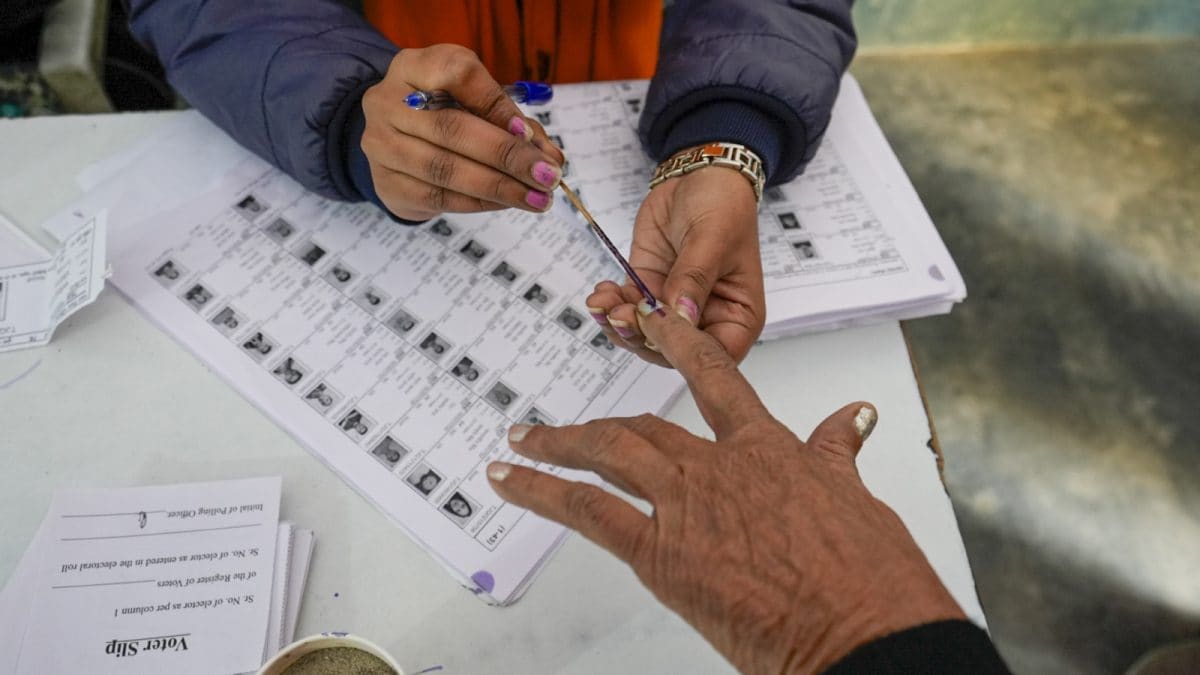ARTICLE AD BOX
Last Updated:July 30, 2025, 10:21 IST
Since 2022, India has a scientifically proven, indigenous Lumpy Skin Disease-specific vaccine readily available but there has been no national rollout despite outbreak warnings

Most state animal husbandry departments continue prioritising goatpox, citing existing stockpiles and lack of directive. (PTI)
India is risking a severe wave of Lumpy Skin Disease (LSD) outbreaks among cattle by continuing to rely on an outdated vaccine despite having a scientifically proven shot, Dr Naveen Kumar, chief of the National Institute of Virology, Pune, has told News18.
A painful and infectious viral disease, LSD, which primarily affects cattle and water buffalo, is resurging in parts of India, with fresh outbreaks reported in Maharashtra’s Pune, Akola, Satara and Buldhana districts. However, the majority of Indian states, despite losing thousands of animals to LSD, are using ‘goatpox vaccination’ made from the goatpox virus (GTPV).
The goatpox vaccine, as the name suggests, was originally developed for goats. It began to be used in cattle only as a temporary solution when no specific vaccine was available to protect them against the viral LSD. However, that is no longer the case. India, since 2022, has a scientifically proven, indigenous LSD-specific vaccine readily available.
Kumar, who is director of India’s premier virology institute and also the lead inventor of India’s only LSD-specific vaccine, Lumpi-ProVac, told News18: “While a safer and efficacious homologous vaccine is available, the country continues to use the goatpox vaccine."
Kumar developed the vaccine during his stint at ICAR’s National Research Centre on Equines (NRCE), Hisar, during the outbreak of the Covid-19 pandemic. In 2022, while Kumar and his team pushed for emergency approval of the vaccine, it wasn’t able to get through, and India kept on using the goatpox vaccine.
“I isolated an LSD virus during the 2019 outbreak and developed a homologous, live-attenuated vaccine using the Ranchi strain. We developed Lumpi-ProVac, a homologous, live-attenuated vaccine, he said while adding that “it remains India’s only LSD-specific vaccine, offering 100 per cent protection with no adverse effects and far superior safety compared to global Neethling-based vaccines which are associated with adverse side effects such as local swelling, decrease in milk production and fever in up to 15 per cent vaccinated animals".
He recalled the chronology of the making of the vaccine and added that following the controlled experimental trials in calves, the LSD vaccine was tested on more than 2.5 lakh animals in field trials. “We have published data on 26,900 animals, proving that the vaccine is safe and effective. Otherwise, the requirement for such vaccine approval is testing on around 500-600 animals."
However, he warned that with waning herd immunity from the 2022 wave, a larger outbreak is likely in 2025 if robust vaccination isn’t ensured.
Dual vaccine policy creating confusion
Although the Department of Animal Husbandry and Dairying (DAHD) issued a letter on June 11, 2025, allowing the use of the LSD vaccine alongside goatpox, it stopped short of clearly discontinuing goatpox. As a result, most state animal husbandry departments continue prioritising goatpox, citing existing stockpiles and lack of directive.
This has led to confusion among veterinary authorities and state policymakers. “DAHD must issue clear instructions to phase out goatpox, as it offers limited protection. Moreover, simultaneous use of both vaccines raises the risk of recombination between the GTPV (Uttarkashi strain) and LSDV (Ranchi strain) vaccine viruses, potentially leading to the emergence of a more virulent virus," Kumar pointed out.
Similar concern has been raised by the co-inventor of the vaccine, Dr BN Tripathi, who headed the National Research Centre on Equines (NRCE), Hisar, at the time Kumar invented the vaccine.
“This dual vaccine policy is causing deep confusion among state veterinary authorities," Tripathi, former deputy director general (Animal Science), Indian Council of Agricultural Research, Ministry of Agriculture and Farmers Welfare, told News18.
“Unless DAHD issues clear orders to phase out goatpox, states will keep using it, despite its poor protection. Worse, using both vaccines simultaneously could lead to recombination between the vaccine strains—potentially creating a more virulent virus."
Despite vaccinating over 100 million cattle annually with goatpox since 2021, India has seen no conclusive evidence of its effectiveness. In Maharashtra alone, during the 2022 outbreak, over 4.18 lakh cattle contracted LSD despite being vaccinated, resulting in 32,000 deaths. “Public spending on goatpox vaccine already exceeds Rs 400 crore annually," Tripathi said.
Why are cattle being given a goat vaccine?
According to veterinary animal scientist Tripathi, the misplaced strategy of using goatpox vaccine instead of Lumpi-ProVac could undo hard-won gains and trigger avoidable livestock losses.
In March, Tripathi, who is now vice-chancellor, Sher-e-Kashmir University of Agricultural Sciences & Technology of Jammu, wrote a letter to the Secretary of the Department of Animal Husbandry, “requesting the consideration for the adoption" of this vaccine.
“I am requesting your consideration for the adoption of this vaccine as soon as possible, given its approval by the Central Drug Standards Control Organisation (CDSCO). Despite this, a group of proponents of the goatpox vaccine has opposed the ICAR LSD vaccine without providing any scientifically valid arguments since its official release on August 10, 2022," wrote Tripathi, calling himself “co-inventor" of the vaccine.
Tripathi warns that unless mass immunisation with the homologous, live-attenuated vaccine is scaled up immediately, the country could see another devastating outbreak — especially during the monsoon, when hot and humid conditions heighten LSD transmission.
While some officials credit the goatpox vaccine for the current decline in LSD cases, he points out the real reason is “the temporary herd immunity conferred by the widespread 2022 outbreak". This outbreak killed 165,000 cattle and caused Rs 18,000 crore in economic losses. “That immunity is now waning, and the goatpox vaccine lacks the immune strength to prevent a resurgence."
Five firms have commercial licenses
Following successful lab trials and large-scale field testing on 2.79 lakh cattle, including pregnant and lactating cows, the vaccine was licensed in 2022 for commercial production. The vaccine produced by Biovet, the Bharat Biotech group, was approved by the drug regulatory authority of India in October 2024, and the vaccine is commercially available with the trade name of “Biolumpivaxin".
There are five firms which are licensed to manufacture the vaccine, including Biovet, Hester Biosciences, Indian Immunologicals Ltd, IVBP Pune and a Karnataka government firm. “It costs just Rs 1–2 per dose and has already demonstrated game-changing results in real-world deployments," Tripathi said.
Unlike the goatpox vaccine, Lumpi-ProVac is the world’s only DIVA (Differentiating Infected from Vaccinated Animals) marker vaccine, meeting the World Organisation of Animal Health (WOAH) standards. “This gives India a critical edge for export and positions it to achieve freedom from infection status, which is impossible with goatpox," Tripathi highlighted.
Hailed for “Chamatkarik Parinam" by CM Yogi
The vaccine’s transformative power was seen at Uttar Pradesh Chief Minister Yogi Adityanath’s gaushala in Gorakhpur. Despite two rounds of goatpox vaccination, the LSD outbreak continued in 2023. At the CM’s request, the indigenous vaccine was used — and the outbreak was brought under control almost immediately.
“He was informed that while the vaccine is not yet approved, this can be injected. The vaccine showed results and, in fact, at the Indian Veterinary Research Institute (IVRI) convocation on June 30, Yogi praised the vaccine’s performance as a “chamatkarik parinam" (miraculous outcome) and voiced frustration over delays in national rollout."

Himani Chandna, Associate Editor at CNN News18, specialises in healthcare and pharmaceuticals. With firsthand insights into India's COVID-19 battle, she brings a seasoned perspective. She is particularly pass...Read More
Himani Chandna, Associate Editor at CNN News18, specialises in healthcare and pharmaceuticals. With firsthand insights into India's COVID-19 battle, she brings a seasoned perspective. She is particularly pass...
Read More
- Location :
- First Published:
News india Cattle Virus Surges, Yet Goat Vaccine Used Despite India’s Own Breakthrough Shot
Disclaimer: Comments reflect users’ views, not News18’s. Please keep discussions respectful and constructive. Abusive, defamatory, or illegal comments will be removed. News18 may disable any comment at its discretion. By posting, you agree to our Terms of Use and Privacy Policy.
Read More



.png)
.png)
.png)
















 18 hours ago
8
18 hours ago
8








 English (US) ·
English (US) ·